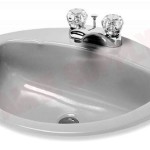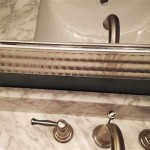Cost to Install Floor Tile in Bathroom: A Comprehensive Guide
Installing new floor tile in a bathroom can significantly enhance its aesthetic appeal and functionality. However, understanding the associated costs is crucial for budgeting and planning purposes. The total expense of a bathroom floor tile installation is influenced by various factors, including the type of tile, the size of the bathroom, the complexity of the installation, and the labor costs in your geographic area. This article provides a detailed breakdown of the cost components to help homeowners make informed decisions.
Materials: Tile Type and Quantity
The primary driver of cost in a bathroom floor tile installation is the tile itself. Tile prices vary dramatically depending on the material, design, and quality. Common tile options for bathrooms include ceramic, porcelain, natural stone (e.g., marble, granite, travertine), vinyl, and glass. Each material offers distinct advantages and disadvantages in terms of durability, water resistance, maintenance, and cost.
Ceramic tile is a popular and affordable choice. It is relatively easy to install, water-resistant, and available in a wide range of styles and colors. Ceramic tile typically ranges in price from $1 to $15 per square foot.
Porcelain tile is denser and more durable than ceramic tile, making it well-suited for high-traffic areas and environments with high moisture levels. Porcelain tile is generally more expensive than ceramic, ranging from $3 to $30 per square foot.
Natural stone tiles, such as marble and granite, offer a luxurious and elegant look. However, they are also the most expensive option, ranging from $5 to $50 per square foot or more. Natural stone requires sealing and specialized cleaning to prevent staining and damage.
Vinyl tile is a budget-friendly option that is water-resistant and easy to install. Vinyl tile comes in various forms, including sheet vinyl, vinyl tile, and luxury vinyl plank (LVP). Vinyl tile prices typically range from $1 to $8 per square foot.
Glass tile is often used as an accent or decorative element in bathrooms. It is water-resistant and adds a unique visual appeal. Glass tile prices can vary widely, ranging from $8 to $50 per square foot or more, depending on the design and quality.
In addition to the tile cost, homeowners must also factor in the cost of other materials, such as thin-set mortar, grout, sealant, and backer board. Thin-set mortar is used to adhere the tile to the subfloor. Grout fills the spaces between the tiles and prevents water from seeping underneath. Sealant is applied to the grout to further protect against water damage. Backer board, typically cement board, provides a stable and waterproof surface for the tile to be installed on. These materials can add an extra $1 to $3 per square foot to the total material cost.
Accurately calculating the required tile quantity is essential to avoid shortages or excess materials. Measure the length and width of the bathroom floor to determine the total square footage. Add an extra 10% to 15% to account for cuts, waste, and potential breakage during installation.
Labor Costs: Installation Complexity and Professional Rates
Labor costs constitute a significant portion of the overall expense of a bathroom floor tile installation. The complexity of the installation, the size of the bathroom, and the prevailing labor rates in your area all influence the total labor cost.
Installation complexity refers to the intricacy of the tile layout, the presence of obstacles (e.g., toilets, vanities), and the condition of the subfloor. A simple, square or rectangular bathroom with a level subfloor will typically have lower labor costs than a bathroom with an irregular shape, multiple fixtures, and a damaged subfloor.
Preparing the subfloor is a crucial step in the tile installation process. The subfloor must be clean, level, and free of cracks or imperfections. If the subfloor is uneven or damaged, it may need to be repaired or replaced before tile installation can begin. Subfloor preparation can add to the overall labor cost, depending on the extent of the repairs required.
Professional tile installers typically charge by the square foot. Labor rates can range from $4 to $15 per square foot or more, depending on the factors mentioned above. Complex installations, such as installing intricate tile patterns or working with natural stone, will typically command higher labor rates.
In addition to the per-square-foot labor rate, some installers may charge a minimum project fee or hourly rate. A minimum project fee covers the cost of travel, setup, and small jobs. An hourly rate may be used for projects with unforeseen challenges or extensive subfloor preparation.
Obtaining multiple quotes from different tile installers is crucial to ensure a competitive price. When comparing quotes, be sure to ask about the installer's experience, qualifications, and insurance coverage. Check online reviews and ask for references from previous clients.
Homeowners with experience in tiling may consider DIY installation to save on labor costs. However, DIY tile installation requires careful planning, attention to detail, and the proper tools and equipment. Mistakes can be costly and time-consuming to correct. If you are unsure about your ability to complete the project successfully, it is best to hire a professional tile installer.
Additional Costs: Subfloor Preparation, Demolition, and Disposal
Beyond the cost of materials and labor, several additional expenses may arise during a bathroom floor tile installation. These costs can include subfloor preparation, demolition of existing flooring, and disposal of old materials.
As mentioned earlier, subfloor preparation is essential for a successful tile installation. If the existing subfloor is damaged or uneven, it may need to be repaired or replaced. Subfloor repair can involve patching cracks, leveling uneven areas, or installing a new layer of backer board. Subfloor replacement may be necessary if the existing subfloor is severely damaged or rotting. The cost of subfloor preparation can range from $1 to $5 per square foot or more, depending on the extent of the repairs required.
Demolition of existing flooring is another potential cost. If you are replacing old tile, vinyl, or other flooring materials, the existing floor must be removed before the new tile can be installed. Demolition can be a labor-intensive process, and the cost will depend on the type of flooring being removed and the size of the bathroom. Demolition costs typically range from $0.50 to $3 per square foot.
Disposal of old flooring materials is often included in the demolition cost. However, some contractors may charge an additional fee for disposal. It is important to clarify whether disposal is included in the quote and to inquire about any additional fees.
Other potential costs to consider include moving or removing fixtures (e.g., toilets, vanities), installing new baseboards or trim, and applying sealant to the grout. Moving or removing fixtures can add to the labor cost, especially if plumbing work is involved. Installing new baseboards or trim can enhance the finished look of the bathroom. Applying sealant to the grout helps to protect against water damage and prolongs the life of the tile floor. These additional costs can vary depending on the scope of the project and the materials used.
In summary, the cost to install floor tile in a bathroom encompasses materials (tile, thin-set mortar, grout, sealant, backer board), labor (installation, subfloor preparation), and additional costs (demolition, disposal, fixture removal, baseboard installation). By carefully considering these factors and obtaining multiple quotes from qualified professionals, homeowners can develop a realistic budget and plan for their bathroom floor tile installation project.
The type of tile selected directly impacts the overall cost, so research diverse materials like ceramic, porcelain, and natural stone. Each offers varying degrees of durability and aesthetic appeal. Ensure to factor in the required quantity and allow for waste during cuts and installation.
Labor charges fluctuate based on installation complexity and expertise. A complex layout demands more precise cuts and intricate knowledge. It's crucial to get several labor quotes to analyze and choose the best fit for the project's scope of work.
Don't overlook extra expenses such as subfloor prepping that affects tile adherence. Demolishing old flooring and disposing of materials are also significant costs. These factors must be included when budgeting for a comprehensive installation.

How Much Does Bathroom Tile Installation And Retiling Cost Forbes Home

How Much Does Tile Installation Cost 2024 Guide

What S The Cost To Install Bathroom Floor Tiles In Tucson

How Much Does It Cost To Retile A Bathroom In 2024 Angi

What Is The Average Cost To Install Tile Floors Rubi Blog Usa

How Much Does Tile Installation Cost 2024 Guide Modernize

How Much Does It Cost To Tile A Shower Modernize

The True Cost Of Remodeling Your Bathroom Tile And All

Ceramic Tile Installation Costs In 2024 Forbes Home

What S The Cost To Install Bathroom Floor Tiles In Tucson
Related Posts







